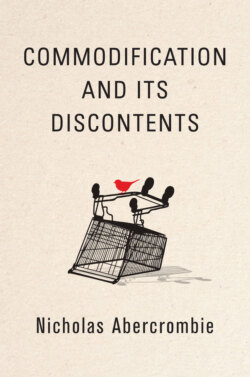Читать книгу Commodification and Its Discontents - Nicholas Abercrombie - Страница 12
2 Land
ОглавлениеLand is special. Most fundamentally, perhaps, it excites emotional commitment. Much of the spirit of nationalism is based on the conviction that a particular territory gives an identity that is celebrated in rituals of various kinds as well as in popular culture. The notion of home is a place where one is safe, whether that is a building, a locality or a nation, perhaps because of the protection given by other people (Linklater, 2015). Religions have sacred spaces – churches, mosques, stone circles, groves of trees or tracts of land – which inspire feelings of awe, of devotion and of a kind of power. And secular spaces can also celebrate what Emile Durkheim thought of as the collective impulse of sacredness, whether they are football stadia, rock concert venues or roadside memorials. Places – religious or not – that carry this emotional charge prove resistant to being treated as commodities like any other. The earliest known lawsuit in Britain, in the year 118, concerned the sale of a woodland sacred to the ancient Britons (Jessel, 2011). Ever since then, the private ownership of land and its purchase and sale, particularly common land, have been hotly contested, but not, it should be said, particularly successfully (Linklater, 2015). In contemporary Britain, the countryside has legal protections and national parks are revered. A study (Rose et al., 1982) found that farmers in Britain, operating in a capitalist market, also manifest a commitment to the land, to its stewardship, and to farming as a practice that is bound up with their ownership of land but is not impersonal. Karl Polanyi puts the point in referring to land as a ‘fictitious commodity’. He argues that: ‘The economic function is but one of the many vital functions of land. It invests man’s life with stability; it is the site of his habitation; it is a condition of his physical safety; it is the landscape and the seasons. We might as well imagine his being born without hands and feet as carrying on his life without land’ (Polanyi, 2001: 187).
There are more mundane considerations too. Land is a social and economic resource. It is required to grow food, to put up buildings, to provide roads and build factories. There is a strong collective interest in its use. It is difficult to imagine a society in which people were not able to move about, build houses or earn a living. As the authors of an influential textbook on land law say in introducing their book: ‘Since land provides the physical base for all human activity, there is no moment of any day in which we lie beyond the pervasive reach of land law … Largely unnoticed, land law provides a running commentary on every single action of every day’ (Gray and Gray, 2007: 1).
These special qualities of land have implications for the control over its use, a control that is, in modern times, given by ownership that is expressed in law and supported by the state. That ownership, however, is not straightforward.
